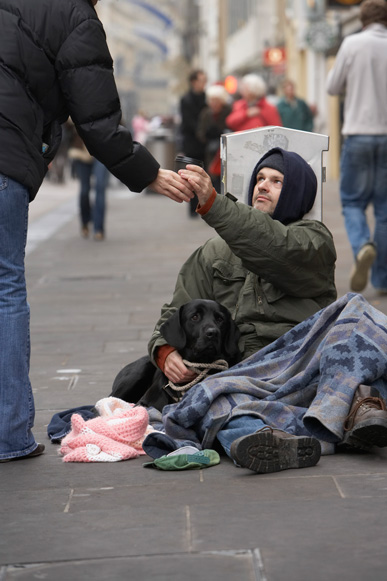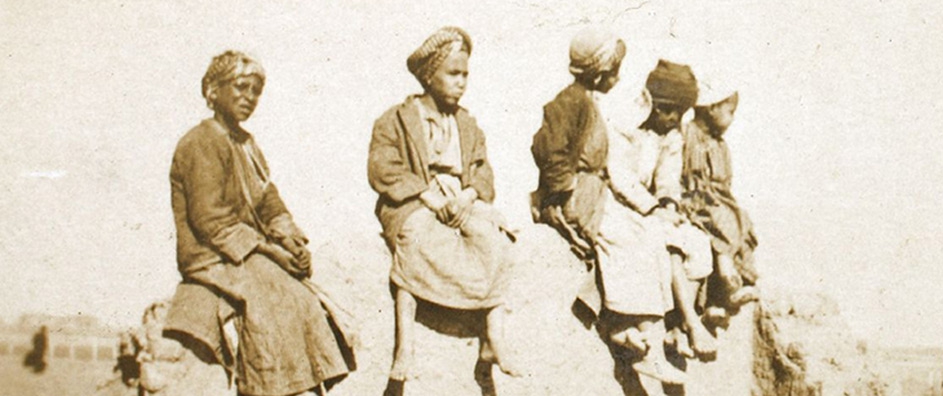The views expressed in our content reflect individual perspectives and do not represent the authoritative views of the Baha'i Faith.
The Baha’i teachings advocate abolishing the extremes of poverty and wealth in human society. That basic Baha’i teaching, instead of emerging from a concerned committee or a group policy decision, came directly from the example of the life of Baha’u’llah.
As a young man in Persia, Baha’u’llah, the prophet and founder of the Baha’i Faith, exemplified this principle by his dedicated work to combat poverty, becoming known as “The Father of the Poor” and “Our Father of Compassion.”
Born into and raised by a prosperous family that owned land and had considerable influence in the political affairs of the country, Baha’u’llah rejected the expectations that he would inherit his own father’s prominent position as a wealthy minister of state. Instead, as a young man he began to expend his family’s assets on a wide range of charitable endeavors that helped alleviate the poverty he encountered in 19th-century Persia. Kind and compassionate, he became deeply beloved by the poor in his homeland.
Many of Baha’u’llah’s contemporaries and relatives worried that he would spend himself and his own family into poverty as a result of his philanthropy. But Baha’u’llah persisted, giving this counsel to all humanity:
Be generous in prosperity, and thankful in adversity. Be worthy of the trust of thy neighbor, and look upon him with a bright and friendly face. Be a treasure to the poor, an admonisher to the rich, an answerer of the cry of the needy, a preserver of the sanctity of thy pledge. – Baha’u’llah, Gleanings from the Writings of Baha’u’llah, p. 284.
Baha’u’llah, definitely generous in prosperity, soon faced enormous adversity. Unjustly thrown into prison because of his new faith, Baha’u’llah and his family suffered tremendous loss very quickly, going from relative wealth to abject poverty literally overnight. At that time, imprisonment in Persia meant officials and others could freely confiscate properties and possessions at will—and they did.
After an early life of prosperity, this extreme privation and poverty gave Baha’u’llah an even greater understanding of the plight of the poor.
Imprisoned and exiled repeatedly for the next forty years of his life, Baha’u’llah never forgot that plight:
If ye meet the abased or the down-trodden, turn not away disdainfully from them, for the King of Glory ever watcheth over them and surroundeth them with such tenderness as none can fathom except them that have suffered their wishes and desires to be merged in the Will of your Lord, the Gracious, the All-Wise. O ye rich ones of the earth! Flee not from the face of the poor
that lieth in the dust, nay rather befriend him and suffer him to recount the tale of the woes with which God’s inscrutable Decree hath caused him to be afflicted. By the righteousness of God! Whilst ye consort with him, the Concourse on high will be looking upon you, will be interceding for you, will be extolling your names and glorifying your action. – Baha’u’llah, Gleanings from the Writings of Baha’u’llah, pp. 314-315.
 Because of Baha’u’llah’s extreme tenderness and altruism toward the poor, and because of Abdu’l-Baha’s lifelong devotion to the problems of poor people, and because of the resulting Baha’i teachings that offer innovative spiritual solutions to economic problems, Baha’is today advocate and assiduously labor for the alleviation of poverty around the world.
Because of Baha’u’llah’s extreme tenderness and altruism toward the poor, and because of Abdu’l-Baha’s lifelong devotion to the problems of poor people, and because of the resulting Baha’i teachings that offer innovative spiritual solutions to economic problems, Baha’is today advocate and assiduously labor for the alleviation of poverty around the world.
Baha’is work in charitable organizations, NGOs, homelessness service providers, addiction treatment programs, micro-lending banks, agricultural cooperatives, grassroots economic development projects, non-profit foundations, innovative education charities and a wide spectrum of global endeavors designed to end poverty. Baha’is pioneer to poor countries, not as missionaries or emissaries of any particular economic system, but to help native populations in their indigenous efforts to eradicate poverty and its impacts.
The Baha’i teachings view poverty in a unique way. Instead of seeing poor people as somehow less capable or favored than others, Baha’is see poverty as a systemic issue, related directly to the way our governmental structures fail to incorporate spiritual principles. First, Baha’is believe, we need to look at the subject of poverty with fresh eyes, through a spiritual lens:
The inordinate disparity between rich and poor, a source of acute suffering, keeps the world in a state of instability, virtually on the brink of war. Few societies have dealt effectively with this situation. The solution calls for the combined application of spiritual, moral and practical approaches. A fresh look at the problem is required, entailing consultation with experts from a wide spectrum of disciplines, devoid of economic and ideological polemics, and involving the people directly affected in the decisions that must urgently be made. It is an issue that is bound up not only with the necessity for eliminating extremes of wealth and poverty but also with those spiritual verities the understanding of which can produce a new universal attitude. Fostering such an attitude is itself a major part of the solution. – Baha’i International Community, August, 1987.
















Comments
Sign in or create an account
Continue with Googleor